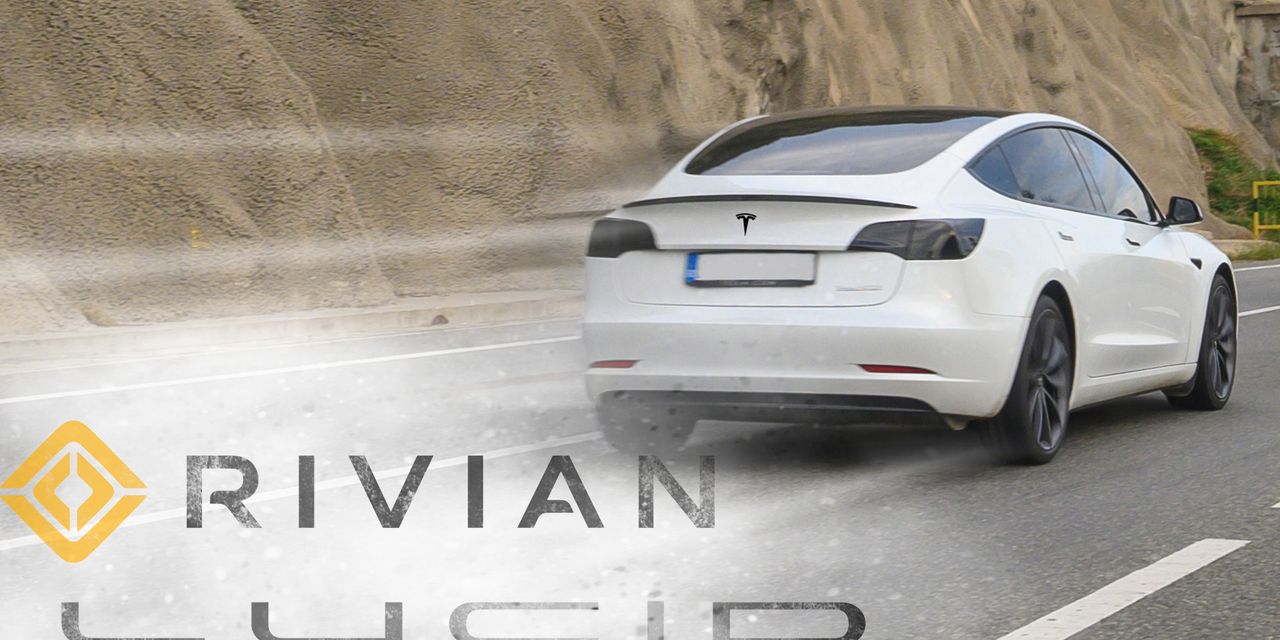It was always going to be difficult.
Ramping up production of a new product, using relatively new technology, is a tall order in the best of times. Electric-vehicle startups Rivian Automotive Inc.
RIVN,
Fisker Inc
FSR,
and Lucid Group Inc.
LCID,
are finding out that it is extra hard in the middle of economic uncertainty, lingering supply-chain worries, rising interest rates and less patient investors.
Earlier this week, Fisker and Lucid cut their production outlooks for the year. Rivian kept its 2023 production guidance intact, but hasn’t kept the critics at bay, with one analyst comparing Rivian’s trajectory going forward as walking “a tightrope.”
See also: Fisker cuts production, posts wider loss than expected
Recent months serve as a reminder that the story of any EV startup, with Tesla Inc.
TSLA,
being the “only confirmed success thus far,” will consist of “inevitable waves (ups/downs) as investor focus to remain on the mosaic of execution/milestones on the treacherous road to sustainable production and scale,” Chris McNally at Evercore ISI said in a recent note.
Don’t miss: Lucid stock drops 9% after EV startup dials down production guidance
The environment in which a lot of the EV startups launched operations is “vastly different from today,” said Michelle Krebs, an analyst with Cox Automotive. Interest rates were low, there was lots of investor money, and the companies captured those flows.
“That money is not as readily available now,” Krebs said. “Investors get impatient and they want to see results, and (this week’s results) are not it.”
The startups also underestimated the amount of cash required to get an EV maker off the ground, and they may be running out of money at a time when it is harder to come by, Krebs said.
Legacy automakers can afford to lose money on EVs — Ford Motor Co.
F,
has said it expects its EV unit to lose $3 billon this year — because they already have steadier streams of revenue from elsewhere, she said. And, of course, Tesla “took a lot of time to turn around, too,” and about a decade before it was profitable.
Lordstown Motors Corp.
RIDE,
last week warned it could run out of cash as its relationship with Taiwanese electronics contract maker Foxconn appears to have soured.
The difficulties of launching a vehicle are not unique to electric cars, but the relatively new technology adds another layer of complexity, Krebs said.
Ford has had years of recalls and problems with its Explorer SUV. As far as EVs, Tesla and General Motors Co.
GM,
have had their fair share of recalls with their vehicles, with GM earlier this year recalling every Chevy Bolt it ever made to swap batteries.
In March, consultants at J.D. Power found that recalls and service times for EVs resulted in the first dip for its customer-service satisfaction index in nearly 30 years. And consumer satisfaction with car services among EV owners is lower than among owners of traditionally powered vehicles, J.D. Power said.
Read the full article here











